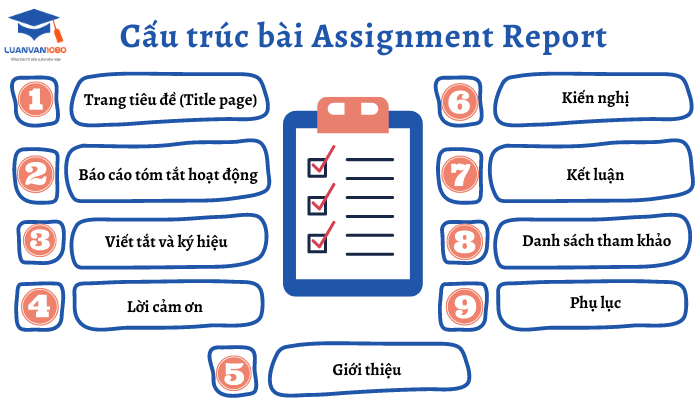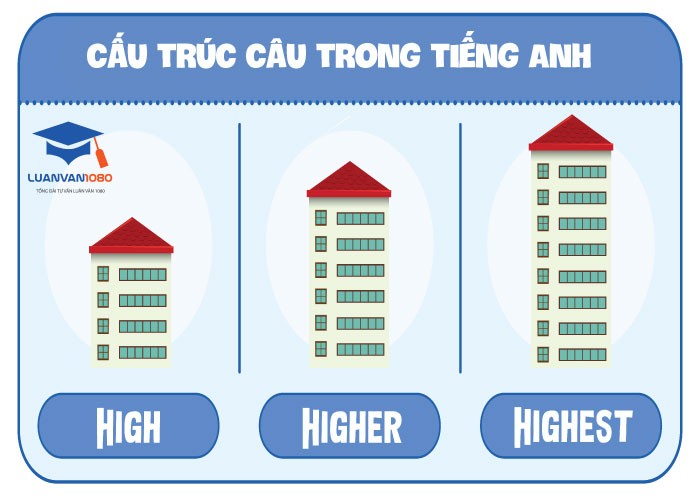Trong IELTS Writing Task 2, Opinion Essay là một trong những dạng bài phổ biến và cũng dễ gây nhầm lẫn nhất đối với thí sinh. Không chỉ yêu cầu người viết thể hiện quan điểm cá nhân, dạng bài này còn đòi hỏi khả năng lập luận logic, triển khai ý mạch lạc và vận dụng linh hoạt các kỹ năng ngôn ngữ. Để đạt điểm cao, bạn cần nắm vững cách nhận diện, cấu trúc bài và cách viết opinion essay thuyết phục. Bài viết dưới đây sẽ giúp bạn hiểu rõ tất cả những yếu tố đó, kèm theo các ví dụ minh họa sát format đề thi thật.
1. Tổng quan về Opinion Essay
1.1. Opinion Essay là gì?
Opinion Essay là một dạng bài luận yêu cầu người viết thể hiện quan điểm cá nhân trước một vấn đề được đưa ra trong đề bài. Quan điểm có thể là hoàn toàn đồng ý, hoàn toàn không đồng ý hoặc đồng ý một phần tùy theo cách tiếp cận của người viết. Nhiệm vụ quan trọng nhất trong dạng bài này là trình bày lập trường rõ ràng và nhất quán, đồng thời sử dụng lý lẽ và ví dụ để bảo vệ quan điểm đó.

Opinion Essay là gì?
1.2. Cách nhận diện Opinion Essay
Opinion Essay có thể được xác định thông qua câu hỏi ở cuối đề bài. Các câu hỏi nhận diện phổ biến bao gồm:
- To what extent do you agree or disagree?
- Do you agree or disagree?
- What is your opinion?
Nếu đề bài yêu cầu người viết đưa ra quan điểm cá nhân mà không kèm theo yêu cầu “discuss both views”, thì đó là dạng Opinion Essay. Việc nhận diện đúng giúp người viết tránh lạc đề và triển khai bài luận một cách chính xác hơn.
>> Đọc thêm: IELTS Writing Task 2: Cách viết essay agree or disagree chỉ với 4 bước
2. Cấu trúc chuẩn của Opinion Essay
Opinion Essay trong IELTS Writing Task 2 thường được trình bày theo cấu trúc 4 đoạn cơ bản, giúp bài viết rõ ràng, mạch lạc và đạt yêu cầu chấm thi. Cấu trúc bao gồm: Introduction – Body Paragraph 1 – Body Paragraph 2 – Conclusion.
2.1. Introduction
Phần mở bài thường có 2–3 câu, bao gồm:
Paraphrase the question
Diễn đạt lại đề bài bằng từ ngữ của bạn nhưng giữ nguyên nghĩa thể hiện khả năng paraphrase và xác định chủ đề của bài viết.
Give your opinion
Nêu rõ quan điểm:
- Hoàn toàn đồng ý
- Hoàn toàn không đồng ý
- Hoặc đồng ý một phần (nếu chọn balanced essay)
Quan điểm cần rõ ràng và xuyên suốt bài viết.
State two supporting reasons
Tóm tắt hai lý do chính mà bạn sẽ phân tích trong hai đoạn thân bài giúp người đọc hình dung được hướng lập luận của bạn.
2.2. Body Paragraph 1
Đoạn này trình bày luận điểm số 1 hỗ trợ cho quan điểm của bạn.
- Topic sentence: Câu mở đầu nêu trực tiếp lý do thứ nhất ủng hộ quan điểm.
- Explanation: Giải thích chi tiết lý do này bằng lập luận logic, nguyên nhân – kết quả hoặc phân tích.
- Example: Đưa ra ví dụ cụ thể, thực tế hoặc tình huống giả định hợp lý để minh họa cho lập luận.
Đoạn này thường gồm 4–5 câu.
2.3. Body Paragraph 2
Trình bày luận điểm số 2, bổ sung cho lập luận của bạn.
- Topic sentence: Giới thiệu lý do thứ hai.
- Explanation: Phân tích lý do một cách rõ ràng và thuyết phục.
- Example: Cung cấp ví dụ minh họa phù hợp, tương tự như Body 1.
Số câu và cách triển khai giống Body 1.
2.4. Conclusion
Kết luận nên ngắn, thường chỉ 2–3 câu, gồm:
- Summarize opinion and key reasons: Tóm tắt lại quan điểm và hai lý do chính đã phân tích trong thân bài và không được thêm ý mới.
- Restate your opinion: Khẳng định lại quan điểm cuối cùng một cách ngắn gọn, dứt khoát.
>> Tham khảo thêm: Dịch vụ thuê viết assignment theo yêu cầu, chuẩn hướng dẫn giảng viên
3. Cách viết Opinion Essay
Việc viết một Opinion Essay hiệu quả không chỉ phụ thuộc vào vốn từ vựng hay ngữ pháp, mà còn yêu cầu người viết có quy trình làm bài rõ ràng. Các bước dưới đây giúp đảm bảo bài viết của bạn đúng hướng, mạch lạc và đáp ứng tiêu chí chấm điểm của IELTS Writing Task 2.

Hướng dẫn chi tiết cách viết opinion essay
Bước 1: Decide on your opinion (Xác định quan điểm)
Trước khi viết, bạn cần đọc thật kỹ đề bài để hiểu chính xác yêu cầu. Sau đó, xác định bạn đồng ý, không đồng ý hay chỉ đồng ý một phần với câu hỏi.
- Đây là bước quan trọng nhất, vì nếu không xác định đúng quan điểm hoặc nêu quan điểm mơ hồ, bạn sẽ mất điểm Task Achievement.
- Hãy chọn hướng mà bạn có nhiều ý tưởng và lập luận mạnh, kể cả khi trong thực tế bạn không hoàn toàn đồng ý với quan điểm đó.
Bước 2: Generate ideas + Vocabulary (Tạo ý tưởng và từ vựng)
Ở bước này, người viết cần nhanh chóng liệt kê những ý tưởng chính liên quan đến quan điểm đã chọn, đồng thời chọn ra hai lý do mạnh nhất để phát triển thành hai đoạn thân bài. Bên cạnh đó, bạn nên ghi lại một số ý phụ để giải thích cho từng luận điểm và chuẩn bị ví dụ phù hợp để minh họa. Việc xác định trước nhóm từ vựng quan trọng bao gồm từ đồng nghĩa để paraphrase đề bài và các cụm từ học thuật theo chủ đề cũng giúp quá trình viết diễn ra mạch lạc và tự tin hơn.
Bước 3: Organize your outline (Sắp xếp dàn ý)
Sau khi đã có ý tưởng và từ vựng, người viết cần sắp xếp tất cả vào một dàn ý rõ ràng, bám sát cấu trúc của Opinion Essay. Ở phần mở bài, bạn xác định cách paraphrase và trình bày quan điểm; hai đoạn thân bài sẽ được phân chia tương ứng với hai lý do chính đã chọn, mỗi đoạn gồm topic sentence, phần giải thích và ví dụ.
Cuối cùng, bạn chuẩn bị một kết luận ngắn gọn để tóm tắt lại quan điểm. Việc tổ chức dàn ý giúp đảm bảo bài viết không lan man, lập luận chặt chẽ và dễ triển khai khi bắt đầu viết.
Bước 4: Writing (Viết bài hoàn chỉnh)
Ở bước này, người viết bắt đầu triển khai toàn bộ dàn ý thành bài luận hoàn chỉnh, đảm bảo các ý được kết nối mạch lạc và bám sát quan điểm đã chọn. Mỗi đoạn cần được viết theo cấu trúc rõ ràng, sử dụng từ nối phù hợp để tăng tính liên kết. Khi trình bày lập luận, bạn nên kết hợp câu giải thích và ví dụ cụ thể nhằm tăng tính thuyết phục. Ngoài ra, việc đa dạng hóa cấu trúc câu, sử dụng đúng ngữ pháp và từ vựng theo ngữ cảnh sẽ giúp bài viết đạt điểm cao hơn.
Trước khi kết thúc, bạn nên dành vài phút để rà soát lại toàn bộ bài nhằm loại bỏ lỗi chính tả, ngữ pháp và chỉnh sửa những câu chưa rõ ý, giúp bài viết trở nên hoàn chỉnh và vững vàng hơn.
3. Tham khảo bài mẫu Opinion Essay hay nhất

Bài mẫu Opinion Essay Band 8.0 + tham khảo cho bạn
3.1. Opinion Essay 1
Đề bài: “Some people believe that technology should be used in every lesson in schools. Do you agree or disagree?”
It is a common belief that technology should be integrated into all classroom lessons. I completely disagree with this idea for several reasons. In my opinion, although technology is useful, relying on it in every single lesson may create more drawbacks than benefits.
The first argument given to support my opinion is that using technology in every lesson can reduce students’ ability to concentrate. When devices such as tablets or laptops are used too frequently, students may become distracted by games, social media, or entertainment websites. This issue becomes even more concerning for younger learners who have weaker self-control. For example, many teachers report that students often switch tabs to unrelated content during computer-based lessons.
Another rationale behind my belief is that excessive dependence on technology may hinder the development of essential academic skills. Traditional learning methods such as reading printed materials, writing by hand, or discussing ideas face-to-face help students build critical thinking and communication skills. If technology is present in every lesson, these skills may be overshadowed. For instance, handwriting exercises, which are important for improving memory retention, may be replaced entirely by typing.
In conclusion, although technology can enhance learning when used appropriately, I strongly believe it should not be applied in every lesson. My opinion is based partly on concerns about student distraction and partly on the potential loss of important academic skills.
3.2. Opinion Essay 2
Đề bài: “Some people think that international tourists should pay more than local visitors to visit cultural and historical sites. Do you agree or disagree?”
It is a common belief that foreign tourists should be charged higher entrance fees than local residents when visiting cultural or historical attractions. I completely disagree with this view for several reasons. In my opinion, applying different prices may create unfairness and negatively affect the tourism industry.
The first argument given to support my opinion is that charging foreign visitors more can be discriminatory and unfair. Cultural heritage belongs to all of humanity, not just a specific nationality, and therefore all people should have equal access. If foreign tourists are forced to pay a higher price simply because of their nationality, this may create negative impressions and discourage them from learning about local culture. For example, many tourists complain when they see dual pricing systems in popular destinations in Asia.
Another rationale behind my belief is that tourism economies rely heavily on foreign travelers, and higher fees may reduce the number of visitors. International tourists already spend a considerable amount of money on transportation, accommodation, and food. Increasing the ticket prices may make the destination less attractive, especially when competing with other countries. For instance, some nations experienced declines in tourist arrivals after implementing increased fees for foreigners.
In conclusion, I strongly believe that foreign tourists should not pay more than locals when visiting cultural or historical sites. This position is based partly on the principle of fairness and partly on potential negative impacts on the tourism industry.
3.3. Opinion Essay 3
Đề bài: “Some people believe that children should be required to play sports at school. Do you agree or disagree?”
It is a common belief that schools should make participation in sports compulsory for all children. I completely agree with this view for several reasons. In my opinion, regular involvement in sports brings both physical and social benefits that are essential for children’s development.
The first argument given to support my opinion is that mandatory sports activities can significantly improve children’s health. Physical education helps prevent common issues such as obesity, weak muscles, and poor posture that many students face due to excessive screen time. Regular exercise also enhances cardiovascular health and builds lifelong healthy habits. For instance, students who participate in school sports are statistically more active in adulthood compared to those who do not.
Another rationale behind my belief is that sports teach important life skills that academic subjects alone cannot provide. Through team activities, children learn cooperation, discipline, time management, and resilience. These skills contribute greatly to their personal growth and future success. For example, teamwork learned through school sports often helps students communicate more effectively in collaborative classroom tasks.
In conclusion, I strongly believe that making sports compulsory in schools is beneficial, partly because it improves children’s health and partly because it strengthens essential social and personal skills.
3.4. Opinion Essay 4
Đề bài: “Some people think that working from home is better than working in an office. Do you agree or disagree?”
It is a common belief that remote work is a better option than working from a traditional office. I completely disagree with this view for several reasons. In my opinion, although working from home offers convenience, the office remains a more effective and productive working environment.
The first argument given to support my opinion is that working in an office improves collaboration and communication. When employees work together in the same space, they can discuss ideas quickly, solve problems more efficiently, and avoid misunderstandings that often occur through digital communication. For example, many companies find that brainstorming sessions are more successful when conducted face-to-face rather than via online meetings.
Another rationale behind my belief is that the office provides a more professional environment that helps employees stay focused. At home, distractions such as household chores, noise, or lack of a proper workspace can reduce productivity. In contrast, offices are designed to support concentration and workflow, with dedicated work areas and fewer interruptions. For instance, employees often report getting more tasks done in the office compared to working remotely.
In conclusion, although remote work offers certain conveniences, I firmly believe that working in an office is the better choice, partly because it enhances communication and partly because it supports higher levels of productivity.
Opinion Essay không chỉ đánh giá khả năng sử dụng ngôn ngữ mà còn phản ánh tư duy lập luận và cách tổ chức ý tưởng của người viết. Khi nắm chắc cách nhận diện dạng bài, hiểu rõ cấu trúc chuẩn và thực hành theo quy trình 4 bước viết bài, bạn sẽ dễ dàng tạo ra một bài luận hoàn chỉnh, thuyết phục và đạt điểm cao. Hãy luyện tập thường xuyên và áp dụng linh hoạt các template để biến Opinion Essay thành dạng bài “gỡ điểm” trong phòng thi IELTS Writing Task 2.


 14 Tháng 1, 2026
14 Tháng 1, 2026 Share
Share











